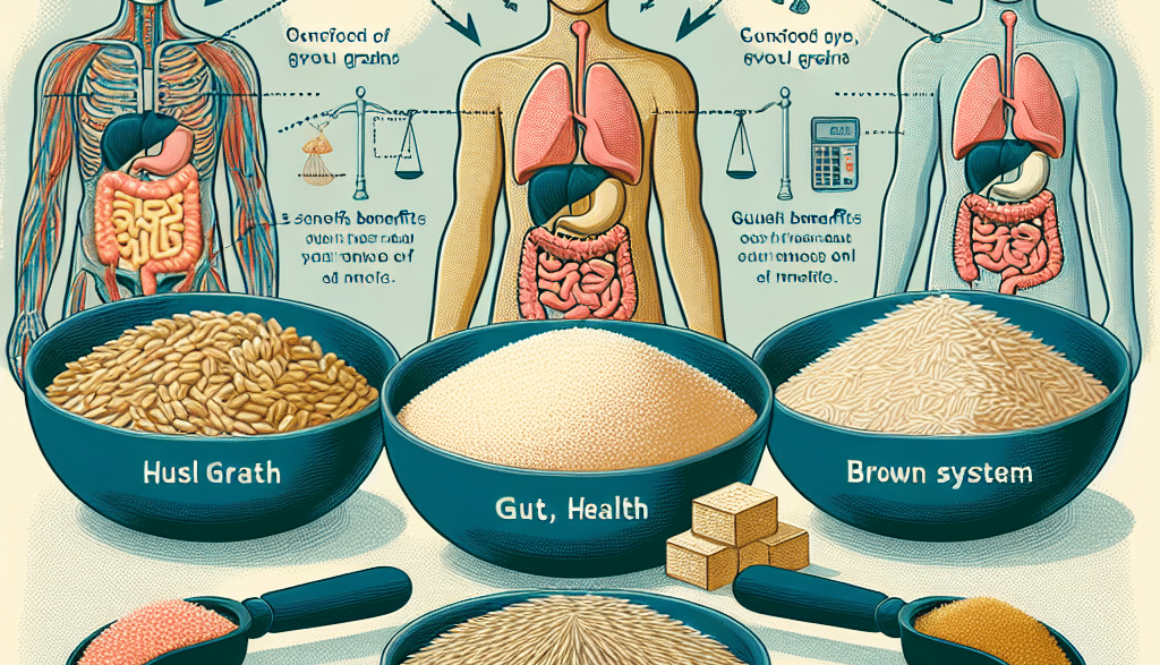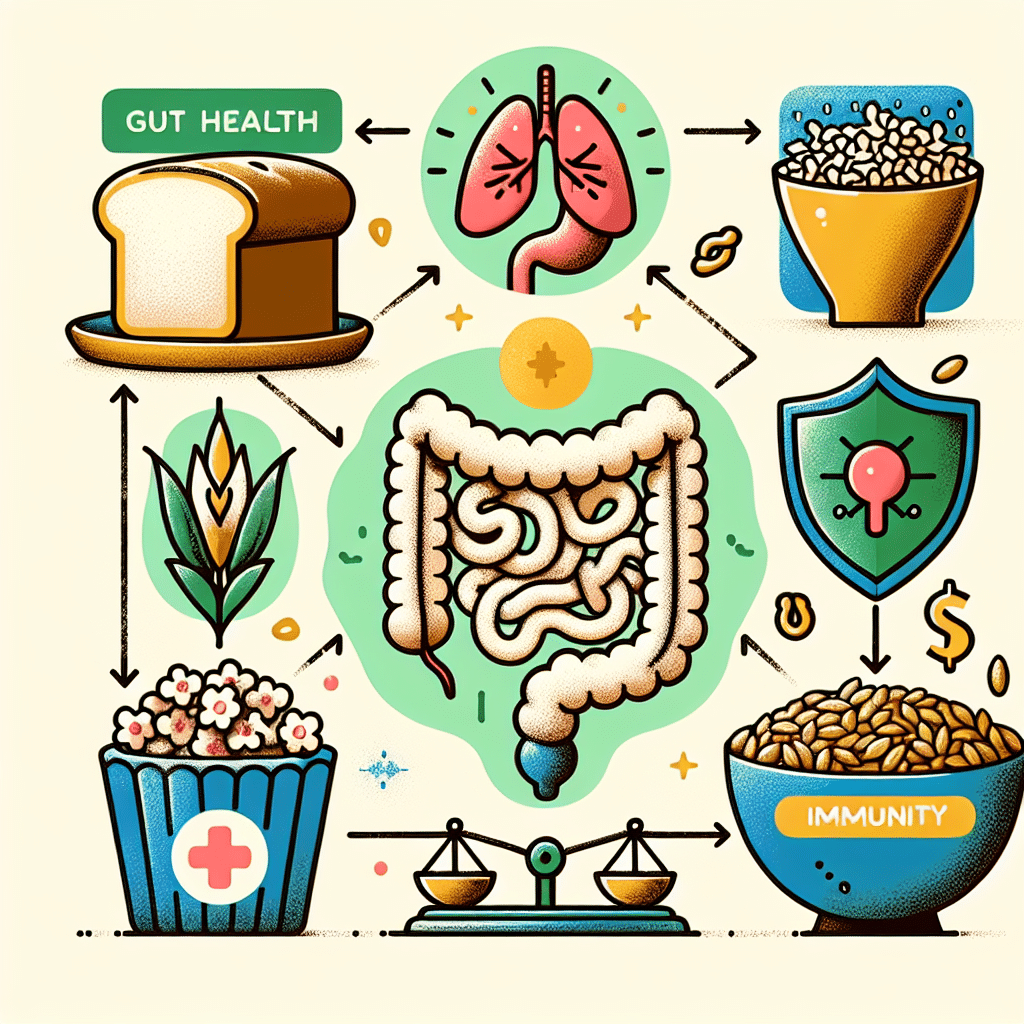The Expanding Need for Functional Foods
-
Table of Contents
- Functional Foods: The Growing Demand for Health-Enhancing Nutrition
- Understanding Functional Foods
- The Drivers Behind the Functional Food Boom
- Popular Types of Functional Foods
- Case Studies and Statistics
- Implications for Consumers and the Food Industry
- Conclusion: The Future of Functional Foods
- ETChem: Meeting the Demand for High-Quality Protein Products
Functional Foods: The Growing Demand for Health-Enhancing Nutrition
In recent years, the concept of functional foods has taken the nutrition and health food industry by storm. With an increasing number of consumers becoming proactive about their health, the demand for foods that offer benefits beyond basic nutrition has surged. This article delves into the expanding need for functional foods, exploring the reasons behind this trend, the types of functional foods gaining popularity, and the implications for consumers and the food industry.
Understanding Functional Foods
Functional foods are foods that have been enhanced or naturally contain active compounds that provide specific health benefits beyond those of normal nutrition. These benefits can include improving heart health, boosting the immune system, reducing the risk of chronic diseases, or even enhancing mental clarity. The functional food market encompasses a wide range of products, from fortified breakfast cereals to beverages enriched with vitamins, minerals, probiotics, and plant sterols.
The Drivers Behind the Functional Food Boom
The expanding need for functional foods can be attributed to several key factors:
- Increased Health Awareness: As information about the impact of diet on health becomes more accessible, consumers are more health-conscious and seeking foods that can improve their well-being.
- Aging Populations: With a growing elderly population, there is a heightened focus on foods that can help maintain health and vitality in later years.
- Rising Healthcare Costs: As healthcare expenses soar, individuals are turning to preventive measures, including dietary choices, to avoid costly medical treatments.
- Technological Advances: Innovations in food science and technology have made it possible to enhance the nutritional profile of foods without compromising on taste or convenience.
- Busy Lifestyles: The fast pace of modern life has increased the demand for convenient, on-the-go options that are also nutritious.
Popular Types of Functional Foods
Several categories of functional foods have gained prominence in the market:
- Probiotics and Prebiotics: These support digestive health and can enhance immune function.
- Omega-3 Fatty Acids: Often found in fish and flaxseed, they are known for their heart health and anti-inflammatory properties.
- Plant Sterols and Stanols: These compounds, added to foods like margarine and yogurt, can help lower cholesterol levels.
- Protein-Enriched Foods: Products with added protein appeal to those looking to build muscle, lose weight, or simply improve their overall diet.
- Fortified Foods: Foods fortified with vitamins and minerals, such as calcium-fortified orange juice, help address specific dietary deficiencies.
Case Studies and Statistics
Several studies have highlighted the impact and growth of the functional food market:
- A study published in the Journal of Functional Foods found that daily consumption of a probiotic yogurt was associated with improved digestive health in the study participants.
- According to a report by Grand View Research, the global functional food market size was valued at USD 161.49 billion in 2020 and is expected to grow at a compound annual growth rate (CAGR) of 7.9% from 2021 to 2028.
- A survey conducted by the International Food Information Council (IFIC) in 2020 revealed that 54% of all consumers, and 63% of those aged 50 and older, are interested in foods that have health benefits beyond basic nutrition.
Implications for Consumers and the Food Industry
The rise in demand for functional foods has significant implications for both consumers and the food industry:
- For Consumers: There is greater access to a variety of products that can support health and dietary goals. However, consumers must also be savvy about marketing claims and ensure they are choosing products based on sound scientific evidence.
- For the Food Industry: There is a clear opportunity for innovation and growth. Companies are investing in research and development to create new functional products that meet consumer demands. This trend also presents a challenge to ensure that these health claims are substantiated and that the products deliver on their promises.
Conclusion: The Future of Functional Foods
The expanding need for functional foods is a reflection of a broader shift towards health and wellness in society. As consumers continue to seek out products that offer additional health benefits, the food industry is responding with innovative solutions. The future of functional foods looks promising, with ongoing research and development paving the way for new and improved products that cater to the health-conscious consumer.
For those looking to incorporate functional foods into their diet, it is important to do so as part of a balanced and varied diet. While functional foods can provide additional health benefits, they should not be seen as a substitute for a healthy lifestyle.
ETChem: Meeting the Demand for High-Quality Protein Products
As the demand for functional foods, particularly those enriched with protein, continues to grow, ETChem is positioned to meet this need with their high-quality protein products. ETChem’s range of collagen products, including marine, fish, bovine, and chicken collagen, offers a versatile solution for enhancing the nutritional profile of a variety of foods and supplements.
With their commitment to quality, instant solubility, and neutral taste, ETChem’s collagen products are ideal for manufacturers looking to create functional foods that appeal to health-conscious consumers. Whether for sports nutrition, weight management, or general health and wellness, ETChem provides the protein solutions needed to succeed in the expanding functional food market.
About ETChem:
ETChem, a reputable Chinese Collagen factory manufacturer and supplier, is renowned for producing, stocking, exporting, and delivering the highest quality collagens. They include marine collagen, fish collagen, bovine collagen, chicken collagen, type I collagen, type II collagen and type III collagen etc. Their offerings, characterized by a neutral taste, instant solubility attributes, cater to a diverse range of industries. They serve nutraceutical, pharmaceutical, cosmeceutical, veterinary, as well as food and beverage finished product distributors, traders, and manufacturers across Europe, USA, Canada, Australia, Thailand, Japan, Korea, Brazil, and Chile, among others.
ETChem specialization includes exporting and delivering tailor-made collagen powder and finished collagen nutritional supplements. Their extensive product range covers sectors like Food and Beverage, Sports Nutrition, Weight Management, Dietary Supplements, Health and Wellness Products, ensuring comprehensive solutions to meet all your protein needs.
As a trusted company by leading global food and beverage brands and Fortune 500 companies, ETChem reinforces China’s reputation in the global arena. For more information or to sample their products, please contact them and email karen(at)et-chem.com today.




















